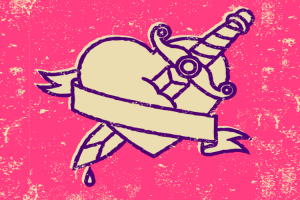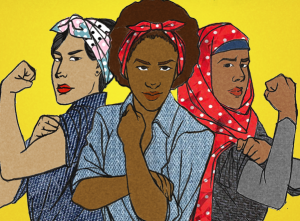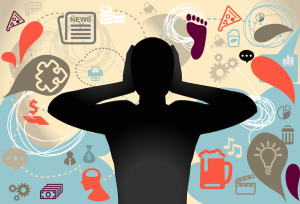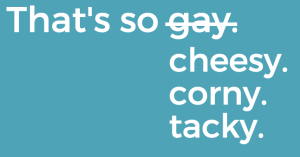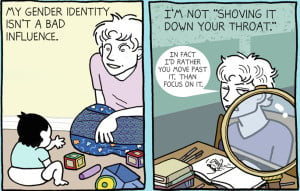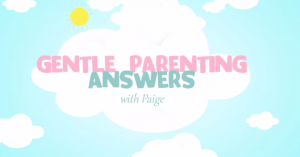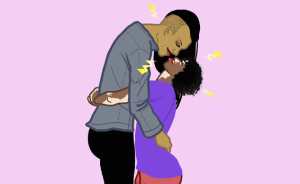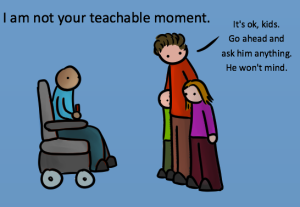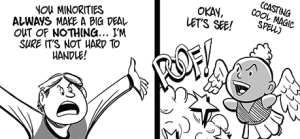New Year’s Eve 2009 found me sprawled across my bed and sobbing.
I had been hoping against hope for a romantic New Year’s invite from my friend Shea, who I’d been crushing on since college. I had spent the entire afternoon hanging out and chatting with him at the bar where he worked, thinking maybe, just maybe, this would be the day he revealed that he felt the same way about me.
It wasn’t.
So I spent the night alone, crying, and wrestling once again with the heartbreak of being rejected by someone who liked me – a lot – but not the way I wanted them to.
I was in my late twenties at this point, and this was an unhappily familiar feeling. For my teens and most of my twenties, my standard romantic situation was “I’m in love with my friend, and they’re probably/definitely not interested.”
If I’d been getting college credit for all those years, I’d easily have a PhD in Unrequited Love, with a specialization in How to Deal Without Ruining the Friendship.
It’s simple, if not easy, to deal with feelings for someone you don’t know well. You suffer, you cry, you write poems, and then eventually you move on. When it’s someone you’re friends with, though, it gets trickier.
You want them to stay in your life. You can’t always avoid seeing them while you nurse your broken heart. And because you know them better, your feelings for them have deeper roots and take longer to die down.
Nothing I’ve learned over the years makes unrequited love not suck. It hurt when I was thirteen, and it hurt when I was 28.
But I did learn a lot of things that made the hurt bearable, and enabled me to have relationships with the people I loved that were healthy for both of us.
So here are the five things I’ve found most helpful in coping with unrequited love.
1. Allow Yourself to Grieve
Unrequited love is a loss.
It is normal to feel grief, anger, denial, and all the other things a person might feel after loss. Your feelings about the person you love are real, and the hopes you had had are real.
In our culture, we don’t give space to mourn the loss of unrequited love. We tend to say either “Go get ‘em, try harder, your love will win out eventually!” or “Stop being pathetic and get over it.”
And neither of these are healthy.
If the person you love isn’t interested, continuing to pursue them is both disrespectful to them and hurtful to you, as it delays your ability to heal. But there’s nothing pathetic about feeling deep sadness when a love you feel deeply isn’t returned. It’s okay to mourn.
When the person you love is a friend, the fact that they clearly like you can make it even harder to process as a loss. No matter how many times you’ve said that you accept they aren’t interested in you romantically, moments of warmth and closeness can bring the fires of hope flickering back to life.
You may end up going through the grief process multiple times. I certainly have, with Shea and with many of the other friends I’ve pined for. It’s frustrating. It’s hard not to feel foolish, wrestling with the same anger and sadness you thought you’d moved past two months ago.
The important thing is to remember that these feelings are normal – and healthy. They take you toward healing, even if the road seems impossibly long and twisted.
2. Pick Your Distance
I’m not going to lay down rules like “You have to stop hanging out with the person you love!” or “You can only call them twice a week!”
Every relationship is different, every person is different, and I can’t tell you what will work for you.
What I can say is that, most of the time, it’ll be helpful to create some extra space between yourself and the person you love while you work on healing from the loss.
Extra space could mean cutting in half the time you spend talking to them. It could mean taking a few weeks or even months off from seeing them at all. It could mean setting aside certain days and times where you focus on other relationships, other activities, anything but them.
Pick what seems to work for you – but do something to create some space.
This is extra important if you’ve been putting a lot of one-sided energy into the relationship. If you’ve been doing them a lot of favors or doing heavy emotional labor that they don’t return, this is the time to pull back on that.
Yes, you’re still friends, and friends help each other out, but it’s important to separate the nice things you do for your friend from the hope that they’ll love you back if you just give enough. You can do that by being very attentive to how much energy you’re pouring into the relationship.
3. Understand What Your Brain is Doing
We’ve known since the beginning of humanity that unrequited love can make you feel despondent, panicked, and obsessive. In the last few decades, neuroscience has given us a little more insight into why we feel those things.
Everybody experiences love and loss a little differently.
For me, for example, my feelings tend to be expressed in obsessive, intrusive thoughts rather than surging rushes of emotion or impulsive actions. But when you look at the neurobiology of lost love, you can see a lot of common threads in the thoughts, feelings, and actions that unrequited love tends to create.
Saying “I can’t stop thinking about the person I love because my dopamine is high and serotonin is low” doesn’t change the reality of that feeling. The feelings are just as strong and real after we have names for the hormones that contribute to them as they were before.
But knowing the biological basics can give you hope, though. I don’t know about you, but when I’m feeling something strongly, I tend to assume I will feel that way forever. I know it’s not true, but I have a hard time really believing that I’ll ever experience anything but the soul-searing pain I’m in right now.
In those moments, it can be helpful to remember that my feelings are related to the surges of hormones in my brain, and that it is completely normal and expected for those hormones to show up under these circumstances.
It doesn’t negate the feelings or diminish their importance. It just puts them in context.
Another helpful insight that neurobiology gives us is this: Romantic, passionate love tends to burn brighter and longer when there are obstacles. In the normal run of things, in a happy and healthy relationship, the butterflies and thrills of new love will fade away in anywhere from six months to two years, with 18 months being the most typical lifespan.
When our love is thwarted, though – whether it’s by external barriers or their not feeling the same way – the lifespan of the infatuation can be extended by years.
So if you’ve been passionately in love with your best friend for five years, and no love in any other romantic relationship has lasted as long, that might be precisely because it’s not working out between you – not because you are special soulmates who belong together.
It also shows why it’s so important to accept the loss and start moving through the breakup feelings. Miserable as they are, they’re the road to a new life.
4. Find Non-Romantic Media to Consume
One of the things that makes it hard to settle into a friendship when you’re yearning for a romance is how hard our culture promotes romantic love as the be-all, end-all of life.
There are so many good things in life that have nothing to do with either romance or sex! It’s hard to remember this, though, when you’re bombarded with stories and songs about love, as if that’s all that’s worth thinking and talking about.
When I’m dealing with romantic loss, whether it’s unrequited love, break-up aftermath, or just an unwanted dry spell, I consciously avoid romantic media as much as possible. I make playlists of songs that are about other things. I stay far, far away from movies and books that center around a romantic plot.
Romantic media, at those times, makes me feel like I’m failing at what’s most important in life. Happy love scenes stoke up all the longings I’m already struggling with.
While I may find some songs about heartbreak and longing cathartic, I pay attention to whether it’s actually helping me or just keeping me down.
There’s another pitfall in romantic media when you’re dealing with unrequited love. So many of our romantic stories paint an unrealistic view of love. They show someone persistently pursuing the object of their affections and finally winning them over. They show unrequited love as something that haunts your life forever.
Rarely do our stories show the things that happen more often in real life: Relentless pursuit only drives away the person you’re pursuing; people who weren’t in love with you five years ago continue to not be in love with you; and the torment of unrequited love subsides with time as you find happiness (and, often, romance) elsewhere.
Even if you know all this is true, consuming media that’s hammering in the opposite message can make it hard to believe and internalize. So in my experience, it’s best to go easy on the love stories while you’re working on healing.
5. Treat Your Feelings Like a Third Person in the Relationship
If your feelings for your friend were a person, what kind of person would they be?
Weird question, I know. Bear with me.
Sometimes I’m sitting having coffee with the friend I’m in love with, talking about our lives, and actually feeling happy in our friendship. And then they say something that makes me feel again how wonderful they are and how great it would be if they loved me the way I love them, and—hey look! My other pal, Feelings, has joined us!
It changes the dynamic, almost as if an actual other person came over and sat down with us. We can’t relate in quite the same way we could before, because Feelings is bringing in a whole new vibe.
As a third party in a relationship, Feelings is pretty high-maintenance. It’s hyper-sensitive and doesn’t get a lot of your jokes. It’s incredibly self-absorbed. Whatever the subject of conversation, it finds a way to connect it back to what it wants and what it thinks is important. It’s a terrible listener.
But, as with many actual people who have these qualities, there’s something attractive about the drama Feelings brings. It gives an intensity and a focus to your time with them. You’re certainly never bored.
So your feelings for your friend are like a third person who keeps coming to hang out with the two of you – whether you’ve invited them or not. Maybe you wish they’d go away and never come back, and maybe you also kinda like the spice they bring. Unfortunately, because they ride along in your brain, you can’t stop taking their calls.
But for me, it’s helpful to think of Feelings as a separate person with their own agenda.
It helps me deal better when they show up. It helps me say things like, “It’s not all about you, Feelings. Hey, Feelings, my friend is trying to tell me something and you’re making it hard to listen. Look, Feelings, I know this is a rough time for you, but you’re not the only one that matters here.”
Maybe, someday, Feelings will go away completely and leave your friendship in peace. Maybe it will settle down and learn to take responsibility for itself, so that it doesn’t disrupt your friendship but just adds a poignant sweetness to it. Only time will tell
6. Let Your Feelings Inspire You
If Feelings is a third party in your relationship, then this is like taking them out for some quality time, just the two of you, so they won’t keep hijacking your time with your friend.
As big and needy and disruptive as unrequited love can be, it is also a tremendous source of energy.
For me, a lot of the pain of unrequited love comes from feeling that energy wasted and meaningless. My feelings for my friend are powerful and important and real, and to think of them as something that I just need to squash or “get over” feels wrong on a very visceral level.
So instead, I think of other things I can do with it.
Making art – whether it’s writing or music or visual – is one use, of course. It can also drive me to accomplish other things. To learn a new skill. To seek out new experiences. To travel and expand my world.
True story: In the aftermath of the most devastating heartbreak I’ve ever experienced, I decided to become a lawyer. For months, most of my free time was consumed in studying and practicing for the LSAT. I had my sights set on a top school, and I wanted to get a score that would make it attainable.
It turned out that “I want to be a lawyer” really meant “I want to be a steely badass who feels no pain and doesn’t need anyone,” and that those two things aren’t actually the same. Also, I am hilariously unsuited for a career like law.
Fortunately, I figured all that out before actually going to law school. But I have a really impressive LSAT score to show for all those months, and more importantly, a boost of self-confidence in what I can achieve if I set my mind to it.
Your feelings can’t make the person you love love you back. That’s not the kind of magic they do. But try listening to them and seeing where else you might be able to channel their energy.
***
While I was getting over Shea, I made a hat. I spun the yarn myself and knit it in a design that reminded me of one of the things I loved most about him. While I was working on it, I let myself really dwell on my feelings for him, my sadness, all the things that were wonderful about him that made me want to be his partner.
When I set down the knitting, I tried to set aside the thoughts, too, and work on building other good things in my life.
The hat was done before my feelings were. In truth, it’s hard for me to say when I fell out of love with any of the friends I’ve been in love with. When I see the magic and beauty in a person, that never really goes away. But the intensity of desire does.
Now when I talk to Shea, my happiness is straightforward, not mixed with longing and pain.
The me who spent New Year’s 2009 crying in her room might disagree, but looking back on it, I’m glad for the many, many times I’ve been in love with friends who didn’t love me back.
Most of the time, it’s given those friendships a depth that they might not otherwise have. And it’s given me lots of practice at those essential feminist skills: respecting others’ boundaries and being kind to myself.
[do_widget id=’text-101′]
Ginny Brown is a Contributing Writer for Everyday Feminism, as well as a speaker and educator specializing in sexuality and relationships. She writes for various publications and has her own blog here. She lives in the Philadelphia area with her poly family and three cats. Follow her on Twitter @lirelyn.
Search our 3000+ articles!
Read our articles about:
Our online racial justice training
Used by hundreds of universities, non-profits, and businesses.
Click to learn more


